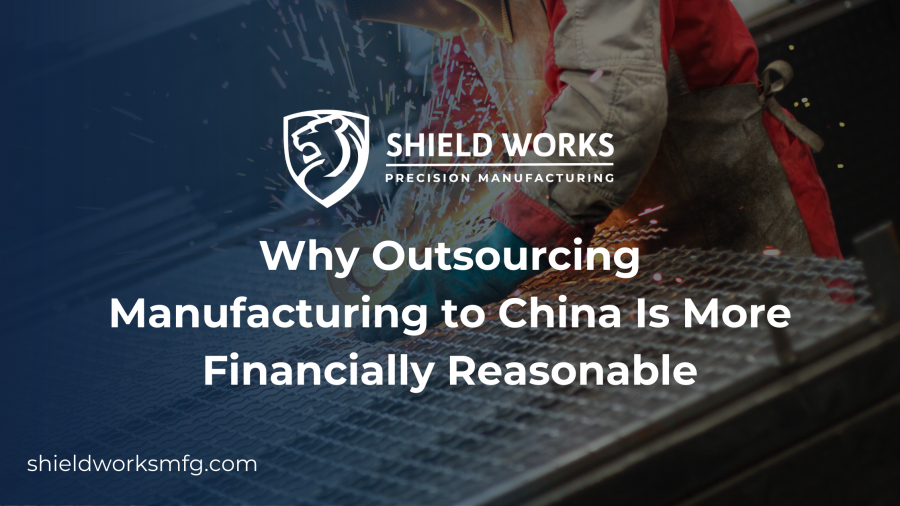Why Outsourcing Manufacturing to China Is More Financially Reasonable

As your business grows, it’s likely that you’ll begin looking at outsourcing some of your manufacturing processes to other countries with cheaper labor costs, such as China. The problem with this practice in the past was the amount of time and money it took to hire workers overseas, monitor their progress, and then ship product back to your warehouse once they were finished. Today, contract manufacturing in China make all of these things easier, making the financial benefits that much more attractive.
Shipping Costs
Depending on where you source your goods, costs for shipping can be prohibitive. Before deciding to manufacture abroad, make sure you fully understand all shipping costs and regulations. In some cases, it’s cheaper to have a freight forwarder who specializes in international shipping do all of your importing from a single location, instead of importing from multiple countries with multiple carriers. On top of import duties, make sure you factor insurance into your cost breakdowns as well. If you’re not handling all shipping related tasks yourself, make sure you find someone who is qualified to handle these duties; if done improperly, shipping companies could lose or damage inventory which could lead to costly product recalls down the road. China’s labor forces are less expensive than other regions while its developed infrastructures mean that delivery times will be shorter because products will spend less time getting through customs. Many large retailers use Chinese manufacturers due to their central locations and short delivery times — many major ports in China are only a few hours away by ship — compared to other manufacturing locations like Mexico or Brazil, which could take up to two weeks for products to reach their destinations by sea.
Currency Conversion
One of the most common concerns about investing in Chinese manufacturing is currency risk. But RMB is very stable given the current climate. It has appreciated a mere 1.3% against the USD over the past year. And, looking back to 2005, when China joined the WTO and opened its borders to western-style investment and trade, RMB has only depreciated roughly 4%. There’s no reason not to be bullish on RMB for years to come. The currency is well-managed by the Chinese government (albeit with some nefarious strings attached), making it a very safe bet for dollar denominated transactions.
Freight Forwarder Costs
Freight Forwarders cost less in China, both in price and percentage of gross profit. Generally speaking, freight forwarders keep anywhere from 5% to 7% of a company’s gross profit as their service fee, but in China they can often cut that to 3%. For example, take a 4 million dollar shipment: A Freight Forwarder might only charge $80,000 instead of $200,000.
Quality Control Costs
There are many reasons why quality control services in China are cheaper but better than many other countries. Quality control services in China have been developed for years, and it has become mature enough. The cost of quality control services in China has been reduced a lot, and it’s much cheaper than other places like Hong Kong and Taiwan. Factories pay less attention on their manpower costs, they tend to hire more workers with less experience and skills, which makes the production lines much slower than before. Factories produce their goods with lower requirement of quality than international standard levels because they hope to sell them in domestic market easily, not paying too much attention on products defects caused by human errors.
Labor Costs in China
Labor costs are still lower than other countries despite rising and labors there are more skilled. While the rise may seem like it’s not worth taking a risk on an overseas location, consider that other manufacturing countries such as South Korea and India have labor costs that are double or even triple what workers make in urban areas of China. Furthermore, according to management consultant The Boston Consulting Group (BCG), labor productivity actually increased in 2013 by 18%, which means that wages have been increasing steadily while work conditions remain favorable for employers. Owing to its high-quality workforce, innovative industry and strong infrastructure network, China has built up global supply chains over time. Most companies choose to locate their factories there due to its strategic location connecting major Western markets. Despite being 3 times farther away from Europe than Mexico and almost 4 times farther away than Bangladesh, more products go through Chinese ports into Europe because Chinese coastal cities are closer.
How Does This Relate To My Product Idea?
You can focus more on renovating and marketing your product by outsourcing manufacturing to China. Since it costs less to manufacture abroad, you can put that money back into your product and save a bundle on quality control in China. If it doesn’t work out, you can switch factories easily without losing much of your initial investment. However, outsourcing isn’t right for every type of business and manufacturing abroad takes time to figure out—but if you’re willing to take a risk and have faith in your company’s vision, getting started with China production could be a smart choice for your bottom line.
With the British background and China base of Shield Works as well as our international bilingual team members and 3PL services worldwide, it is a great option to enjoy quality of China manufacturing and hassle-free process. Leave all your manufacturing troubles to us. If interested, please feel free to contact us.
